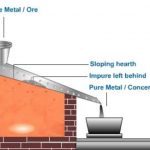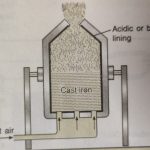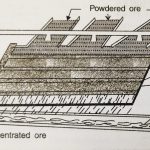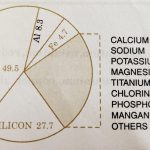Purification or refining of Metals The metal obtained by any of the above methods is usually impure and is known as crude metal. Therefore, the crude metal is to be purified. The impurities may be in the form of 1) unreduced oxides of the metals 2) non-metals like C, Si, P, As, S etc. 3) foreign metals 4) slag or flux. The process of purifying the crude … [Read more...] about Purification or refining of the Metal
General Principles and Processes of Isolation of Elements
Extraction of Crude Metal from Concentrated Ore
Extraction of Crude Metal from Concentrated Ore The process of working of the concentrated ore to extract metal depends upon the nature of the ore as well as the nature of the impurities present in the ore. The concentrated ore must be converted into a form which is suitable for reduction. Generally, the sulphide ores are converted to oxides before reduction because oxides … [Read more...] about Extraction of Crude Metal from Concentrated Ore
Crushing, Grinding and Concentration of the Ore
Extraction of Elements Most of the elements do not occur in the free state in nature but these occur in the combined states. In the combined states, metals are usually found in the oxidised form (e.g., Fe2O3, MnO2, SnO2 etc.), while non-metals occur in the reduced form such as halide ions (Cl¯, Br¯, I¯). The metals can be obtained from their oxidised forms by reduction … [Read more...] about Crushing, Grinding and Concentration of the Ore
Modes of Occurrence of Elements and Metals
Modes of Occurrence of Elements The elements generally occur in the free state (called native state) or in the combined state. This is mainly because of different chemical reactivities of elements. 1) Native State The elements which have very low reactivity and are not attacked by oxygen or air, moisture, carbon dioxide or other non-metals occur in the free state, called … [Read more...] about Modes of Occurrence of Elements and Metals



